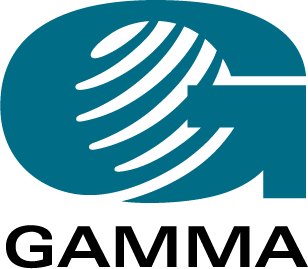Stocks Slide After Strong Data on Factory, Services Sectors
Stocks Slide After Strong Data on Factory, Services Sectors
Oil prices sink as sanctions hit Russian energy; bond yields climb
By Paul Vigna
December 5, 2022
Stocks tied closely to the health of the U.S. economy dropped sharply Monday despite strong data, a sign of the intense market fixation with the risk that the Federal Reserve will continue to raise interest rates throughout the next year.
Shares of big regional banks, which are particularly sensitive to the economic outlook, were among the biggest decliners. PNC Financial Services dropped 6.8%, Citizens Financial Group fell 5.3% and Regions Financial declined 5.1%.
Fed officials have signaled plans to raise their benchmark interest rate by 0.5 percentage point at their meeting next week, which would mark a slowdown from recent meetings. But elevated wage pressures could lead them to continue lifting it to higher levels than investors currently expect, The Wall Street Journal reported Monday.
That would likely keep stocks under pressure, with investors fretting about rates remaining higher for longer. Monday’s readings on service-sector activity and factory output, which suggested the economy remains resilient, added to those worries.
The Institute for Supply Management’s reading on the services sector in November came in at 56.5, up from 54.4 in October and above expectations of 53.7. Factory orders in October were up 1%, according to the Commerce Department, above market expectations for a rise of 0.7%. Those data points followed Friday’s relatively strong jobs report.
The November rally, during which both stocks and bond prices rose, in itself was enough to make a giveback kind of day like today inevitable, said David Kelly, chief global strategist at JPMorgan Funds. “We were due for some sort of relapse,” he said.
Investors had been focused more on good news and betting on a more dovish Fed, said Karl Chalupa, chief executive and co-founder of Gamma Investment Consulting. But he sees the economy slowing and expects equities will turn lower after the holidays.
“The market was trading on rosy news,” he said. “From our perspective, it’s not going to be realized.”
In the bond market, the yield on the 10-year U.S. Treasury note rose to 3.598%, from 3.502% Friday. Yields, which move inversely to prices, had fallen for four straight weeks.
Meanwhile, oil prices fell even as new sanctions on Russian energy took effect and easing Covid-19 lockdowns in China raised demand forecasts for early 2023. The Organization of the Petroleum Exporting Countries and a group of producers led by Russia, collectively known as OPEC+, said it would keep production at current levels.
U.S. crude futures fell 3.8% to $76.93 a barrel, while Brent crude dropped 3.4% to $82.68.
In corporate news, shares of Tesla fell $12.41, or 6.4%, to $182.45 sfter Bloomberg and Reuters reported that the electric-vehicle maker plans to cut production at its Shanghai plant in December.
Shares of VF, parent of brands including The North Face and Vans, dropped $3.71, or 11%, to $29.51 after the company cut its revenue and earnings outlook and said Chairman and Chief Executive Steve Rendle would retire.
In Europe, the Stoxx 600 slipped 0.4% and the CAC 40 fell 0.7%, while the FTSE 100 rose 0.1%.
Asian markets were also in focus as local Chinese authorities took more steps to ease strict Covid-19 policies that have crimped the country’s growth. The Hang Seng rose 4.5%. The Shanghai Composite Index gained 1.8%.
Key stocks including e-commerce giant Alibaba and smartphone maker Xiaomi leapt. The CSI 300 Index, a gauge of the largest listed companies in mainland China, rose 2% to its highest level since mid-September.
Over the weekend, Shanghai scrapped a requirement for residents to show negative PCR tests to take public transportation or enter public outdoor venues. Hangzhou, the home city of Alibaba, also loosened some restrictions. Investors have increasingly focused on China’s Covid-19 policies over the past month, leading to big rallies and occasional slides in stock prices.
“We have this happy congruence with more and more easing in Covid policy,” said Redmond Wong, a strategist at Saxo Markets Hong Kong. That is making a stronger Chinese economic rebound next year more likely, he said.
Investors see tech companies as being among the biggest beneficiaries of China’s potential reopening, said Christina Woon, investment director of Asian equities at Abrdn. The Hang Seng Tech Index, which has many Chinese internet stocks, soared 9% Monday.
The optimism could help lift stocks through the first half of 2023, said Chetan Seth, an Asian equity strategist at Nomura. But there is a caveat. He said should China continue to open up, caseloads could shoot up, leading to rising death rates.
“This is exactly what we saw in some other markets globally in their initial phases of reopening,” Mr. Seth said.
Residents waiting to be tested for Covid-19 in Shanghai on Monday.PHOTO: QILAI SHEN/BLOOMBERG NEWS
Write to Paul Vigna at Paul.Vigna@wsj.com and Joe Wallace at joe.wallace@wsj.com
